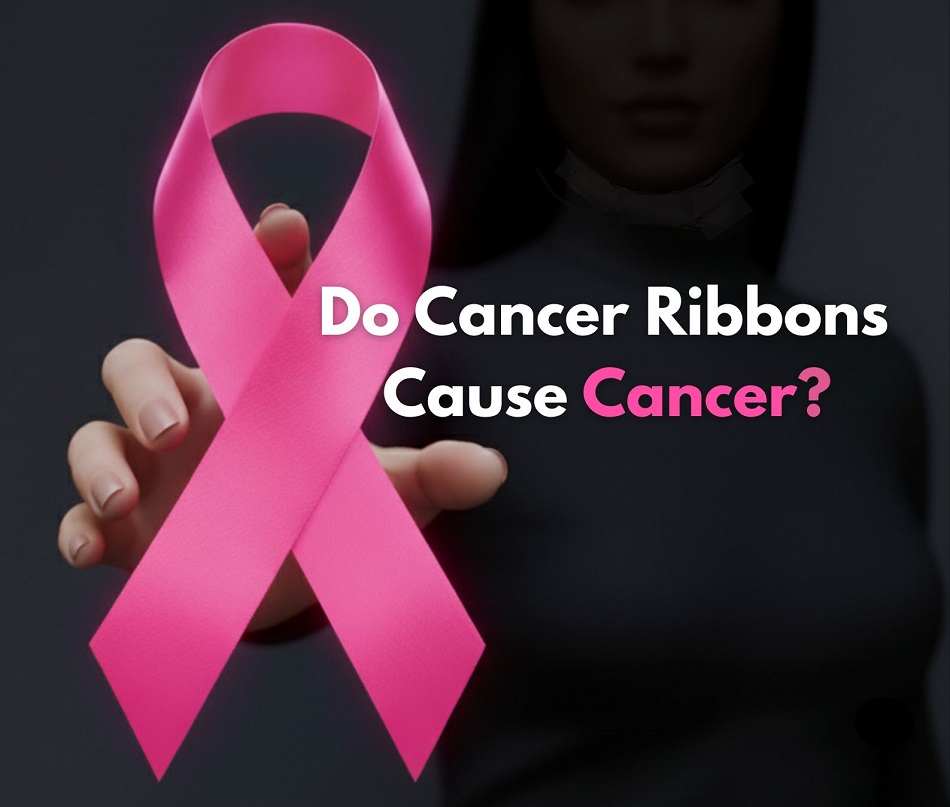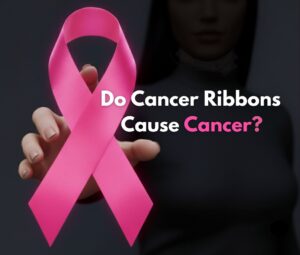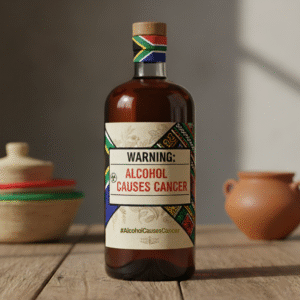Do Cancer Ribbons Cause Cancer?

Cancer Awareness Ribbons
Edward Chamberlain-Bell is an award-winning food and lifestyle writer, cancer survivor, and founder of The JoziStyle Cancer Project, a South African initiative promoting cancer prevention and early detection.
The Pink Ribbon Paradox: The Symbol of Cancer Awareness Is a Microplastic Health Hazard Exposing Corporate Hypocrisy.
Never trust anybody who gives you free medical advice with a pink cocktail and a polyester ribbon. Party sure, but health advice, no.
October is the month for pinkwashing — everything from chardonnay to pride to cancer is pink. It’s the one month of the year when companies can pretend to care about breast cancer simply by checking a pink PR box. And it sells like fashionable guilt in luxurious imitation satin.
Pink cupcakes? Yum! Pink packaging? Gorgeous! Pink ribbons? Groundbreaking!
The irony is that cupcakes do more to fuel cancer than prevent it, food packaging is marginally less toxic than cancer, and polyester ribbons shed enough microplastics to disrupt your hormones and cause cancer. Pinning a pink ribbon to your breast is a visual metaphor for cause and effect.
Cancer awareness has more costume changes than Halloween. Every month has cancer, and every cancer has a ribbon.
Admittedly, ribbons themselves don’t cause cancer, but their material might. Whichever way you spin it, petroleum-based ribbons are basic plastic. They are cheaper to produce than a plastic bag, and are no better for you or the environment. Ideally, you want a ribbon made from natural fibres that haven’t been dipped in any cancer-causing chemicals. Honestly, it’s so simple that even somebody who predicts makeup trends for a living could have figured it out by now.
You should also know that satin is a technique, not a fabric. A satin ribbon can be made from anything that can be woven into something shiny, with a rash of unintended consequences to follow.
This is not a criticism of companies that initiate cancer awareness campaigns. As a cancer survivor myself, I recognise the importance of corporate initiatives that promote prevention because they are often the only source of information for people who have limited access to healthcare services.
I am also aware that it takes more than a promotional gift to beat cancer. We need companies to commit to cancer prevention by eliminating all carcinogenic or environmentally harmful chemicals from their products. For example, replace polyester ribbons with natural fibre cotton or silk ribbons. Your brand’s GWP will become a conversation about sustainability, rather than just a tax write-off.
This is a reminder for all brands to consider if their cancer awareness campaigns are a commitment to prevention or a macabre marketing strategy that capitalises on death, disease, and ribbons.
People often think it’s just a ribbon, but that ubiquitous little ribbon disrupts hormones and increases the risk of breast cancer. It’s literally a microplastic cancer bomb pinned to your breast. If you don’t want to kill your customer, don’t give them ribbons.
One doesn’t want to cast aspersions on the good intentions of others, but cosmetic companies have been milking the PR opportunities of breast cancer awareness by distributing millions of pink ribbons all around the world. If the ribbons were polyester, which they most likely are, given the constraints of mass production, cost-effectiveness, and colourfastness, it would amount to approximately 110 tonnes of material — about the size of a blue whale in pink plastic.
Breast cancer is an issue that affects everyone; men get breast cancer, too, and their prognosis is often worse. Many men are probably more familiar with examining women’s breasts for cancer than their own. Ironically, for some men reading this, it will be the first time that they realise that they have breasts on their chests
Notwithstanding any contact with ribbons, disposing of them releases more microplastics into our environment, which returns them to us unchanged. The absurdity of promoting cancer awareness by wearing cancer-causing awareness ribbon defies logic. If you really want to prevent cancer, stop handing out the ribbons.
Pinkwashing is not limited to the cosmetics industry alone because everyone, from fast food chicken to fracking companies, has dipped their bits in a bit of pinkwash. People ask if pinkwashing is a bad thing if it’s for a good cause, but what message does it give to people if it’s just self-promotion for the sake of sales? We seem to care more about symbols than solutions, and it allows companies to feel good without doing any good.
In the wise words of Shania Twain: That don’t impress me much!
If awareness doesn’t prevent cancer, then what does? Real prevention begins when companies start making healthier products for customers. We’re blamed for microplastics polluting the oceans, yet seafood companies fish it out and sell it back to us in even more plastic. Even a six-year-old knows that actions speak louder than words.
Similarly, how hypocritical is it that women are prescribed synthetic hormones to regulate their natural hormones, yet those hormones are packaged in hormone-disruptive packaging? Pharmaceutical companies should warn their customers: We’ll tamper with your hormones, but never our packaging.
Somebody needs to tell companies that we’re not in Kansas anymore. We don’t need corporate guilt trips about personal responsibility from the same companies that poison us. We don’t need pink packaging; we need safer packaging. We don’t need more microplastic ribbons when they’re contributing to cancer.
There is more to cancer prevention than eating less and exercising more. It’s not about pink chicken or pink ribbons either. Companies should spend as much money removing carcinogens from their products as they do promoting their commitment to cancer awareness.
This isn’t an indictment of the pink ribbon; it’s an observation about how companies exploit pinkwashing as a marketing tool instead of a moral responsibility. Cancer awareness shouldn’t be a sales pitch or a merchandising moment; it should be a catalyst for change because prevention requires action throughout the supply chain. We’re never going to beat cancer unless we take responsibility for its cause and consequences.
Cancer begins when we ignore the details that cause it, but we can end it when we demand personal and corporate accountability. Cancer awareness needs to evolve from performative campaigns — which have been remarkably shortsighted in retrospect, into a demonstrable commitment to prevention. This begins with the production, packaging, and promotion of all everyday consumer goods.
Let’s start by replacing synthetic ribbons with natural ones that don’t come back to haunt you. Sure, pink ribbons are fun and fabulous, but they’re not preventing cancer any faster than a pink martini or a satin bullet.
Start by looking at all cancer awareness ribbons and asking yourself where do they come from and where are they going?
Cancer awareness isn’t about collecting ribbons — it’s about creating the change that deserves one.
Disclaimer: This social commentary about pinkwashing is intended to provoke discussion. If you feel it is a personal attack, consider the possibility that a guilty conscience may be a more reliable indicator than the author’s intent.



